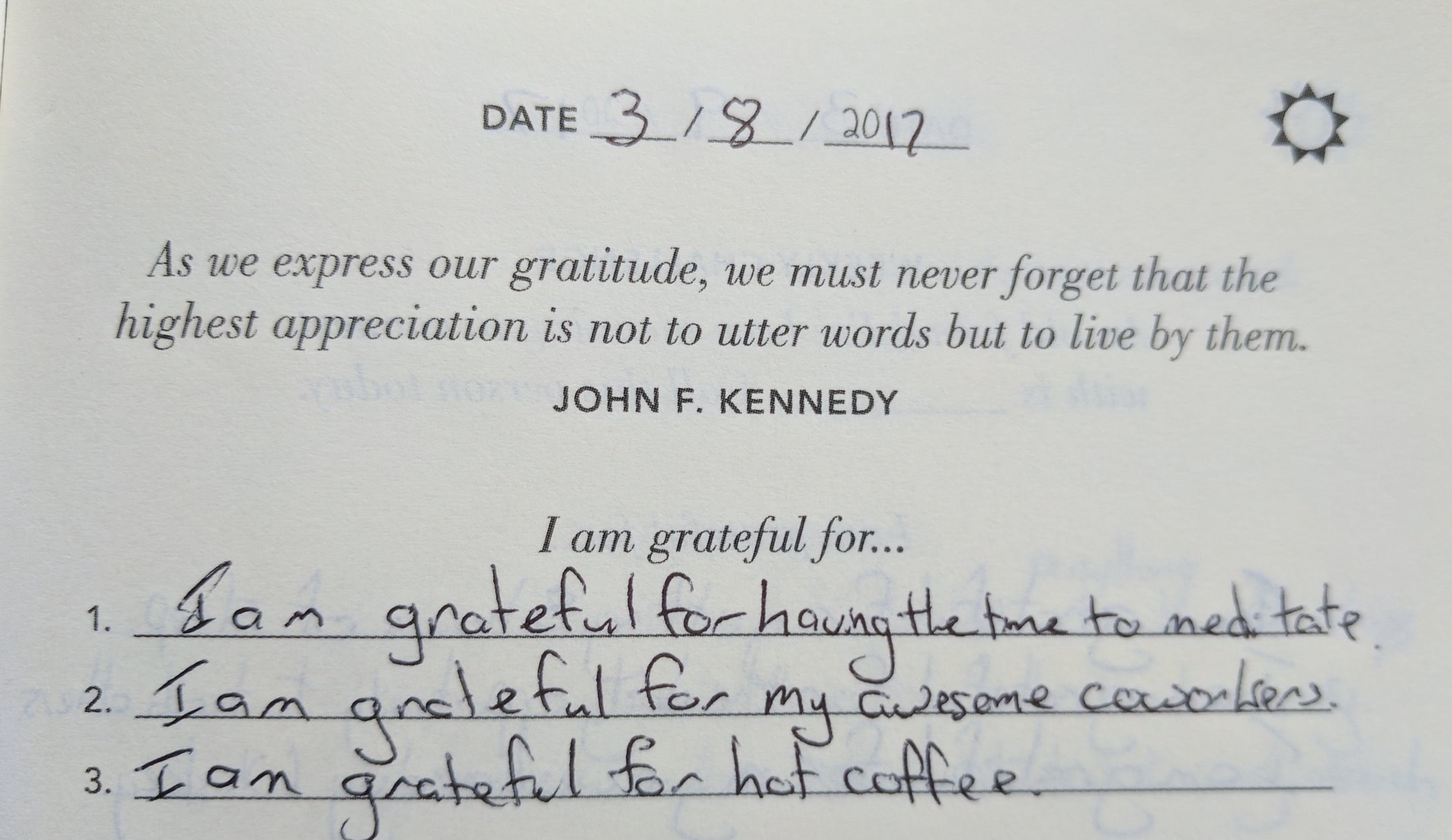"Why do these kind of things always happen to me?"
I stared at the hole in the front grill of my new car. Someone backed into it with their trailer hitch, cracked the grill all the way down the middle and drove away. No note and no apologies.
There are a few things wrong with the "woe is me" attitude into which I eagerly slipped. To begin with, it was based in pure fantasy. "These things" never happened to me. In the course of my 12 years of driving experience, this was only the second time that my car had been damaged. Aside from the delusion, this negative attitude also made things worse. Instead of getting over the incident and moving on, I agonized over it, surveilled the neighborhood for suspects, and lost sleep worrying about a repeat offense. My interpretation of this tiny little incident cost a week or two of mental capital and anguish, anguish which turned out to be much worse than the event itself.
What would have happened if I approached the event with gratitude? It sounds anti-intuitive and a bit insane, but let's take a closer look. Although a hit-and-run is less than ideal, someone with a gracious mindset might focus on the fact that they have insurance, while the offender may not have been able to afford it or the bump in rates that come along with causing damage. If I had a gracious mindset , I would have been thankful that it only cost a tiny fraction of the actual damage amount to repair. I paid $250 to repair $1,000 worth of damage. Aside from repairing the damage, the body shop also detailed my dreadfully filthy car. The $250 was worth it just for the cleaning.
The human mind is much better at noticing the negative events over the positive ones. Remember all of those times that someone didn't cut you off on the road? What about all of those times when your flight left on time? We notice the missed deadlines, perceived slights, and unfair treatment, but we easily forget the 99% of the times when things go as planned. We forget how lucky we are to have flights to take and cars to drive. Reveling in the negatives is a hard habit to overcome, but overcoming this bad habit can dramatically increase happiness. Had I focused on the positives in my situation, I would have saved a week of agonizing over my first world problem, and I would have been happier as a result.
This is all great, but how can someone develop a mindset of gratitude? Journaling is one way. I've tried various forms of journaling and often turn to journals when the times get tough. Despite knowing the benefits of journaling, I've never been able to make it stick, meaning the relief is only temporary.
I found my solution to the journaling problem in The Five Minute Journal. The concept is simple and revolves around establishing a habit of gratitude. Each page of the journal represents one day, and there are approximately 200 days worth of pages. I start each day by listing three things that I'm grateful for, three things that would make today a great day, and a daily affirmation.
In the evenings, I wrap up the day by listing three awesome things that happened during the day and a way that I could have made the day better. The key is to complete the morning half as soon as possible upon waking up and the evening half as close as possible to bedtime. This leads to starting and ending the day with feelings of gratitude, and this regular practice is a powerful way to develop the habit.
I've often gone to bed worrying about a work problem or started the day grumpy about the weather. The Five Minute Journal journaling process flips the script. After a week or so of the process, I started to expect to feel gratitude first thing in the morning and prior to bed, which affected my emotions before I even filled out the day's page. Instead of fixating on the bad, my brain started to fixate on the good. It sounds silly, but it really works.
I started The Five Minute Journal process with a simple text file and blank notebook, and I found it beneficial enough of a process to buy the official product. The official version is certianly pricier than a text file, but spending a little cash up front reinforces the need to stick to the habit, for me at least. I hate wasting money on things that I don't use. The journal itself is very well made, with embossed lettering on the front and a woven hardback cover. It starts with a complete primer on how to use the daily pages and provides substantial background on its design process and intended use. The paper is thick and fountain pen friendly.
From start to finish, The Five Minute Journal's little design choices here and there make it a joy to use. Each daily page comes complete with an inspiration quote, and there's even a weekly challenge to amp up your gratitude game. These challenges range from simple thankyou writing to making small donations to favorite charities.
The Five Minute Journal is an excellent tool for developing a habit of gratitude, which leads to a happier life. The positive results of using the journal were immediate for me, but I really noticed a mental shift after my first month. For those who aren't quite ready to drop $20 for the official version, start with a plain notebook or text file. If that works for you, consider the fancier version. Regardless of what you use, incorporating a journaling practice into your daily life can have major positive benefits.





